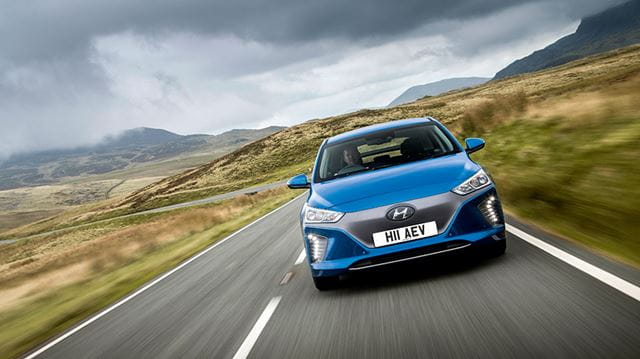
From new diesel options through smaller petrol engines to fully electric cars – which fuel will you pick?
Once they were well over half the new cars sold, but diesels have tumbled to barely a quarter. So what sort of engines have their buyers moved to, and should you follow?
Our motoring expert Paul Horrell discusses the most recent changes in the way we power our cars. Read on for advice on picking a fuel source that's right for you.
The death of diesel
Part of the reason diesels fell is that we became aware they were responsible for much more toxic pollution than they had declared. Several stages of legislation were supposed to have cleaned them up, but city air didn't get much fresher and people were being poisoned. Every year, tens of thousands of people died early.
So, cities have begun introducing various charges and bans against old diesel cars. This spooks people from buying new ones, fearing they'll either attract those penalties, or be worth little at trade-in.
But there's a second reason diesels are fading. New petrol engines give lots of easy pulling power, and other options that were very fringe have rapidly matured. There are effective and economical hybrids, plug-in hybrids and pure-electric cars that can be cheaper to run.
Fully electric

To choose, you need to be aware how you use the car. If you can plug in at home (you'll need a special heavy-duty outlet, but the car dealer will help) then consider an electric car or a plug-in hybrid.
Many electric cars (EVs) can now travel 200 miles or more after an overnight charge that costs under a tenner. They can also can be recharged in under an hour on a growing network of roadside posts. Plus they're smooth, lively and need little maintenance. And their purchase price is subsidised by £3500.
Notable examples are the new Tesla Model 3, Nissan Leaf, BMW i3 and Kia e-Niro, with additional luxury – £80k or so – entries in the Jaguar I-Pace, Audi E-Tron, Mercedes EQC and Tesla S and X.
Read more of our specialist electric car content:
Discover the future of car interiors
Find out what the fuel stations of the future will look like
Take a look at the best new cars out there
Hybrid benefits

Or if you commute say 20 miles, and occasionally do long trips for work or leisure, a plug-in hybrid (PHEV) might make sense. They have an electric motor and smallish battery, but also a petrol engine. In gentle running for that commute, they'll operate entirely on the electric system, saving money. And if zero-emission zones are introduced, they'll be allowed in. But on long trips, the petrol engine kicks in, so you can stop and refuel quickly, as normal. But note they make little sense unless you plug them in regularly – although company car drivers also harvest strong BIK savings.
With the Volkswagen Golf GTE at the popular end, you can get PHEV versions of many BMWs, Mercedes, Volvos and Audis. Plus even Porsche SUVs and several supercars, where the extra efficiency of the motor is spent on performance not economy.
The more common type of hybrid can't be plugged in. This type is dominated by Toyota, notably with the Prius and Corolla hybrid, and also Lexus – which is a subsidiary of Toyota anyway. They have only a small battery, enough to drive the car for a mile or so. But that battery keeps being recharged by harvesting waste momentum as you slow down. They're smooth and notably economical in town, because the engine is often shut off. That's why they're such favourites of the cab trade. But on motorways they're little more economical than a straightforward petrol, and on rural roads they feel unresponsive.
Traditional options

Pure-petrol engines have become smaller, with fewer cylinders but turbochargers and clever fuel injection to make up the possible performance loss. Driven gently they can now return pretty good economy figures especially in medium to long trips.
Even so, if you're buying a big car, and do a lot of towing or rural driving, still think about a diesel. The modern ones increasingly manage to meet their promised toxic emissions targets, but also they pump out less CO2 than petrols. Which was the reason the Government incentivised them so much back at the turn of the century. They're not dead yet.





